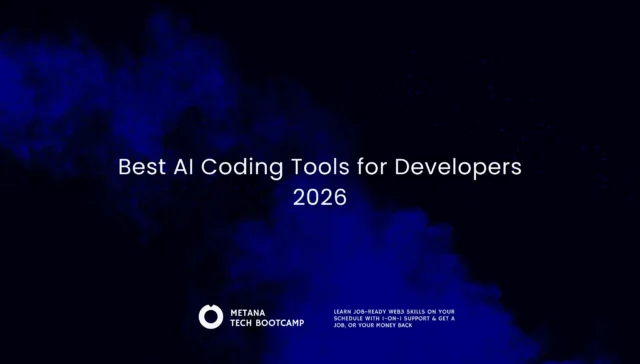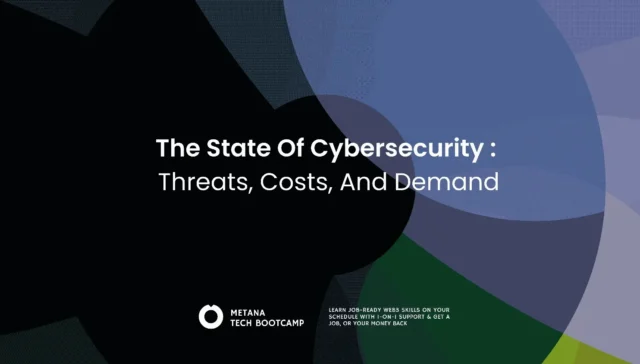In the ever-evolving world of blockchain technology, Solidity has established itself as the go-to programming language for creating smart contracts on the Ethereum platform. As the demand for decentralized applications (dApps) continues to grow, so does the interest in learning Solidity. But is it still worth learning in 2024? This article will delve into this question, offering valuable insights, especially for those new to the topic.
What Is Solidity?
Solidity is a powerful programming language designed to write smart contracts on the Ethereum blockchain. According to the Solidity team,
“Solidity is a powerful programming language designed specifically for writing smart contracts on the Ethereum blockchain. With Solidity, developers can define the rules and behaviour of decentralized applications (DApps).”
If you’re familiar with JavaScript, you might learn Solidity easier since it shares similar syntax. Solidity allows developers to create digital agreements, or “smart contracts,” that can be executed independently, making it a cornerstone of decentralized applications.
Why Should You Learn Solidity?
Solidity is the primary language for making smart contracts on the Ethereum blockchain, basically the backbone of decentralized apps (DApps). Learning Solidity gives you a backstage pass to the vast Ethereum world, with all its tools, libraries, and community.
Did you know Solidity developers in the US can make anywhere from $120,000 to $225,000 a year? Salaries depend on where you work, how much experience you have, and the size of the company. But you can score some serious cash if you’re good at Solidity. The demand for Solidity developers keeps increasing as the blockchain world grows, so it’s worth a shot.
Don’t worry, learning Solidity doesn’t have to be overwhelming. The following section provides a step-by-step guide to help you on your journey to becoming a Solidity developer.
How Should You Approach Learning Solidity in 2024?
Learning Solidity can be a rewarding journey, especially if approached methodically. Here’s a step-by-step guide to help you get started.
1. Start Learning Javascript
Whether you’re a seasoned programmer or just starting, learning JavaScript is essential. If you have prior web development experience with JavaScript, you’re already one step closer to becoming a Solidity developer. For beginners, JavaScript is an excellent introduction to programming, and it’s crucial for integrating smart contracts with dApps through libraries like Ether.js and Web3.js. Moreover, Solidity’s syntax is quite similar to JavaScript, making the transition smoother.
2. Dive Deeper Into Javascript With Typescript
After learning Javascript, the next logical step is to learn TypeScript, a superset of JavaScript that introduces static typing. Unlike JavaScript, TypeScript isn’t a loosely typed language. Today’s JS/TS ecosystem is where Typescript is preferred to Javascript since it helps write more robust and reliable code. If you don’t have experience working with statically typed programming languages or are not familiar with statically typed languages, investing time in learning TypeScript will ease your transition into Solidity development.
3. Take Some Crash Courses
Before diving into in-depth tutorials, starting with crash courses that provide a solid foundation quickly is a good idea. Platforms like Udemy, Coursera, LinkedIn Learning, and even YouTube offer courses covering Solidity, smart contract development, and dApp creation. These courses often include practical projects, allowing you to apply what you’ve learned and gain hands-on experience, which is crucial for solidifying your understanding of Solidity.
4. Reach The Final Milestone With A Bootcamp
Congratulations, you have come so far. Now it’s time to take your learning to the next level by enrolling in a well-tailored bootcamp. Bootcamps offer structured learning environments, day-to-day feedback, and hands-on experience that can accelerate your progress. They often provide career support, helping you land your first job as a Solidity developer. Some bootcamps even guarantee job placement, making them an excellent investment in your future.
At Metana, we believe that learning Solidity is a valuable skill that can open doors to numerous opportunities in the blockchain industry. Our program offers a comprehensive and advanced curriculum created by industry experts, personalized mentoring sessions, and a fast-track learning schedule that takes just four months. Our JobCamp will equip you with the knowledge and skills needed to become the best candidate for your first job and beyond. Don’t take our word. Here are the best web3 solidity bootcamps according to Alchemy.
So, what are you waiting for? Enroll in our bootcamp today and start your journey toward becoming a future blockchain/Solidity developer.
In summary, Learning Solidity in 2024 remains a strategic and rewarding choice for anyone interested in blockchain technology. As the backbone of the Ethereum ecosystem, Solidity offers numerous opportunities for developers in a rapidly expanding industry. Following a structured learning path can position yourself at the forefront of the blockchain revolution.
Solidity is more than just a programming language; it’s a gateway to a thriving industry with endless possibilities. Whether you’re a beginner or an experienced developer, investing time in learning Solidity can lead to exciting career opportunities and make you a key player in the future of decentralized technology.
FAQs
Can a beginner learn Solidity?
- Absolutely. Beginners can learn Solidity, especially if they start with a basic understanding of JavaScript. Solidity’s similarities to JavaScript make it accessible, and there are plenty of resources available to help newcomers.
Does Solidity require math?
- Basic arithmetic is used in Solidity, but advanced mathematics is generally not required. However, having an understanding of cryptography and algorithms can be beneficial for more complex smart contract development.
Is Solidity enough for blockchain development?
- While Solidity is essential for developing on Ethereum, blockchain development also involves other skills. You’ll need to understand the Ethereum Virtual Machine (EVM), use development frameworks like Truffle or Hardhat, and integrate with Web3. Learning additional programming languages and blockchain platforms can further enhance your capabilities as a developer.









